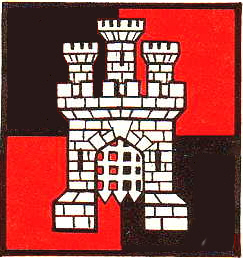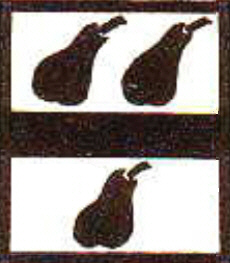Chess at 2011 Solstice
Four variant - some would say deviant - chess games were played on 22 December the shortest day.. The buffet bar stocked the expected chrisps, biscuits, chocolates, mince pies, and Christmas slices and the innovation this year was introduced by Rob Sutton: sushi. Ray Collett acting as master of ceremonies introduced each variant and paired players for their games. The variant to be played, however, was chosen by lot. The four variants were: Pocket Knight Chess; Avalanche Chess; Knight Relay Chess; and Progressive Chess. The controller ruled that with suchi on the menu, there was enough Japanese influence and members would not be playing Japanese Chess.
Pocket Knight Chess
The pieces move conventionally, but each player has one extra knight. This 'pocket knight' can be placed on an unoccupied square of the board at any stage of the game instead of the player making a normal move. These games often come to a sudden end when a pocket knight is parachuted in to form major pieces.
Progressive Chess
Again all pieces move conventionally. White, as usual moves first. Black replies by making two moves on black's turn. White then plays three successive moves and so on. As in the normal game, the king cannot be moved into check at any stage of a turn and if a player gives check, that terminates the turn and the opponent's first move of the turn must be to escape the check. These games tend to be violentand often pawns are promoted after a sequence of moves on a turn.
Avalanche Chess
At each turn, a player makes two moves. The first is a conventional move and the second advances one of the opponent's pawns one square only forward towards the turn-player's position. At this stage of the turn, the player may choose which of the opponent's pawns to move but may not capture. If there is no legal forward pawn move, no further action takes place and the turn reverts to the opponent. As in normal chess, it is illegal to place one's king in check and if the opponent has checked one's king, the first move of the turn must be to escape the check even if the subsequent moving of an opponent's pawn blocks the check. When a pawn reaches the eigth rank, it is promoted and the pawn's 'owner' chooses which piece to promote to whichever player moved the pawn to the queening square. If a player is obliged to move a pawn that gives check to the turn-player's king, that player is mated even if the turn-taker has delivered mate with the first move of the turn. The removal of the pawn shielding the kings leads to violent play!
Knight Relay Chess
In this game, the four knights can be moved, but they cannot capture, give check, or be captured. The king only moves conventionally, but other pieces can acquire the powers of a knight in addition to its existing powers, if a knight is a knight's move from a friendly piece or pawn. The game leads to bizarre postions because the knights, being immune from capture, can block attacks. If a player has two bishops and makes a relay knight move with one of the bishops, that player has two bishops on the same colour squares.
Winners
The controller declared John Clark new member Rob Walkowiak winners. They didn't score the most points, but their chess was enterprising and played in the Christmas spirit.

